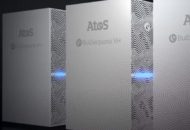The sorry saga of SCO and Linux staggers on. This is one thing the IT industry could have done without. End-user software has not progressed for years because of Microsoft’s monopoly, which made the advent of open source software (OSS) the most important development for a decade.
Here was the basis of an alternative to Microsoft, which would benefit everybody (except possibly Microsoft, but even they should produce some better products in a competitive environment); those who want to get rid of Microsoft will have an alternative and those who chose to stay with them will have better value products than at present.
While it is not the only OSS product, indeed the servers and applications will eventually become far more important, the operating system, Linux, is the critical product to get the ball rolling. Linux has by now made big inroads into corporate IT, mainly on Intel-based servers, so that there is already a huge installed base. However the very nature of OSS systems means that suppliers across the board, Linux developers such as Suse, Red Hat and Caldera, as well as system suppliers such as IBM, HP, Dell, etc. will not indemnify users from any third party claims. This is the situation being exploited by SCO.
Two names in the above list are particularly important, IBM and Caldera. Equally important is the missing name, Microsoft, because they are probably behind SCO in the action against IBM. Caldera is important because they are one of the initial companies, along with Red Hat, etc. to sell a commercial version of Linux. But they also took over the ailing Unix software house, SCO, giving them both Linux and Unix products and control of the Unix source code, distributed to IBM (AIX), Sun (Solaris) and HP (HP/UX) amongst others.
This all seemed a good idea but they missed out on the key customer for Linux, IBM. IBM favoured Suse and Red Hat. As Linux server installations proliferated, sales of Intel based Unix servers slumped and SCO were in financial trouble.
It is equally true that the sale of Intel-based Unix systems was also adversely affected by Windows NT, but there was nothing SCO could do about that. Instead, in desperation, that hit on the idea of generating income by suing people to make up for lack of sales.
The only weapon that SCO has is their ownership of the Unix source code. This has a long history, starting with AT&T and passing through Novell’s hands before arriving at SCO. This is SCO’s Achilles heel because the Unix code itself contains lots of code from a variety of sources, including some that they have put into the public domain themselves. SCO does not own the rights to this code just because it is in Unix!
SCO have charged IBM specifically for distributing Linux to customers, which contains lines of code copied directly from Unix, without paying royalties. In effect they are accusing IBM of deliberately stealing from the Unix source code that they licence for AIX, which is ridiculous.
The most despicable thing that SCO have done however is to contact known users of Linux and to "warn" them that may have to pay royalties and penalties for using the software that they have purchased in good faith. This is a blatant attack on the whole OSS movement, a thinly disguised effort to stop its progress. For no other reason than this underhand trick SCO deserve to loose out and I personally hope that the IT industry gangs together to make sure that they do.< BR>
Martin Healey, pioneer development Intel-based computers en c/s-architecture. Director of a number of IT specialist companies and an Emeritus Professor of the University of Wales.





